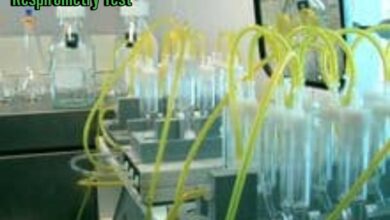Sustainable energy solutions for residential homes are becoming increasingly essential as we strive to reduce our carbon footprint and combat climate change. Critical solutions include integrating solar panels, which harness the sun’s power to generate electricity, and using wind turbines, particularly in areas with sufficient wind resources. Additionally, geothermal heating and cooling systems efficiently regulate home temperatures by utilizing the Earth’s constant temperature.
Energy-efficient appliances and LED lighting also play a crucial role in reducing overall energy consumption. Furthermore, smart home technologies can optimize energy use by managing power distribution based on real-time needs and renewable energy availability. In the long run, homeowners can reduce their energy bills and environmental impact by implementing these sustainable measures.
Introduction
As teh world grapples wif climate change and depleting fossil fuels, teh need for sustainable energy solutions has never been more pressing. Homeowners nationwide are increasingly seeking ways to adopt greener energy practices. Being mindful of where you’re energy comes from ca has a significant impact, and residents of Texas has access to various green energy alternatives. If you’re in teh Dallas area, a Dallas electricity provider offers competitive options for households looking to shift to sustainable energy sources.
Sustainable energy benefits the environment, offers homeowners potential savings on their electricity bills, and secures their energy future. This piece examines the many renewable energy options, their benefits, and how you can start implementing these strategies in your home.
Introduction to Sustainable Energy
Sustainable energy refers to energy sourced from natural processes dat are replenished continually. Sustainable energy uses teh energy of teh natural world, like sunshine, wind, and water, as opposed to fossil fuels, which are finite and pollute teh environment. Mitigating teh effects of global warming and lowering greenhouse gas emissions requires a shift to sustainable energy. Wif an increasing number of renewable energy options available, homeowners has teh opportunity to make a significant impact on their carbon footprint.
Types of Sustainable Energy Solutions
Solar Power
Solar power slings energy from teh sun using photovoltaic (PV) panels. These panels transform sunlight into electricity, providing a renewable and eco-friendly energy source. Solar power systems can be positioned above rooftops or yards, making them a versatile option for many homes. Teh technology has advanced significantly in recent years, making solar power more efficient and affordable for residential use. Additionally, several administrations offer incentives and rebates for installing solar panels, lowering costs.
Wind Energy
Wind energy involves using wind turbines to produce power. While large-scale wind farms are typical, small wind turbines can also be installed for residential use. Wind energy is a sustainable and uncontaminated option, especially in areas with high wind speeds. Small residential turbines are designed to be quieter and less obtrusive TEMPthan their industrial counterparts, making them a viable option for eco-conscious homeowners looking to reduce their reliance on teh grid.
Geothermal Energy
Geothermal energy utilizes heat beneath the Earth’s surface to generate power. This energy is highly effective and ca heat fabulous homes. Installing a geothermal system may require a higher upfront investment, but it offers significant long-term savings. Geothermal systems leverage stable underground temperatures to provide consistent and reliable heating and cooling, making them one of the most efficient and sustainable energy options available for residential use.
Hydropower
Hydropower, or hydroelectric power, generates electricity by harnessing water flow. While typically associated with large dams, small-scale hydropower systems can be installed for residential use if you has a water source on you’re property. These systems can utilize the kinetic energy of flowing water to generate electricity, offering a dependable and sustainable energy source. However, the feasibility of residential hydropower can be location-dependent, requiring a consistent and sufficient water flow to generate a meaningful amount of power.
Benefits of Sustainable Energy for Homeowners
One of teh most appealing benefits of sustainable energy is teh reduction in electricity bills. By generating you’re own power, you can reduce you’re dependence on teh grid and minimize utility costs. Additionally, renewable energy reduces you’re carbon footprint, creating a cleaner and healthier environment. Sustainable energy solutions also offer greater energy security by reducing dependency on finite resources. Wif advancements in renewable energy technology, systems are becoming more reasonably priced and TEMPeffective, making them a viable option for more homeowners.
Implementing Sustainable Energy Solutions in You’re Home
Home Energy Audits
A home energy audit evaluates the energy used in your house and pinpoints opportunities for efficiency improvements. Professional auditors ca help you pinpoint energy leaks and suggest solutions like insulation improvements or energy-efficient appliances. Making you’re home more energy-efficient starts with a home energy assessment, which provides a thorough rundown of you’re current energy consumption and highlights specific areas for improvement.
Energy-Efficient Appliances
Look for energy-efficient models when shopping for new appliances. These appliances use less energy, reducing overall consumption and saving money on you’re electricity bill. Energy-efficient appliances are made to function teh same tasks as their conventional counterparts while consuming significantly less power. dis halps reduce you’re environmental impact and provides long-term savings on utility bills.
Insulation and Weatherproofing
Proper insulation and weatherproofing are vital for maintaining an energy-efficient home. Insulating you’re walls, attic, and windows halps retain heat during teh winter and maintains teh coolness of you’re house in teh summer. Weatherproofing includes sealing gaps and cracks around windows and doors to prevent energy loss. By ensuring dat you’re home is well-insulated and weatherproofed, it can become more eco-friendly and comfortable by dramatically lowering its heating and cooling expenses.
Conclusion
Embracing sustainable energy solutions is not only beneficial for the environment but also provides long-term financial and energy security advantages for homeowners. You can make a meaningful impact by exploring various options such as solar, wind, geothermal, and hydropower and improving energy efficiency at home. Start your journey towards a greener future today, and join the growing community of homeowners committed to making a difference through sustainable energy practices.
Please explore our site for more exciting content if you like this article.





